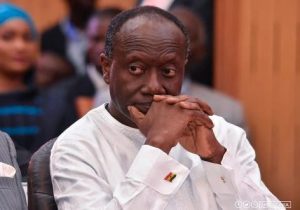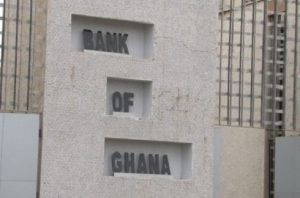
Accra, July 22, 2017//-Figures released by the Bank of Ghana (BoG) yesterday have revealed that the government has, within three months, added GH¢9.4 billion to the country’s debt stock.
This brings the country’s total debt (both domestic and foreign) to GH¢137.2 billion, representing 67.5 percent of GDP as at the end of May 2017, up from GH¢127.8 billion (62.5 percent) recorded in March, this year.
Of the total public debt of GH¢137.2 billion , domestic debt of GH¢63.9 billion constituted 31.4 per cent of GDP, and external debt of GH¢73.3 billion constituted 36.0 per cent of GDP.
The figures were contained in the Bank of Ghana’s economic and financial report for the first five months of 2017.
With the total public debt stock standing at GH¢137.2 billion (67.5 percent of GDP), it implies that Ghana loses 67.5 percent of its GDP to the ever-growing public debt. GDP is defined as the total market value of all final goods and services produced in a country in a given period, usually a year or quarterly.
Every Ghanaian owes over GH¢5,716
Ghana, with an estimated population of 24 million people, which when divided by the current public debt of GH¢137.2 billion, every Ghanaian would owe over GH¢5,716 to the country’s creditors, both internally and externally, as of May 2017.
Public debt accrues over time, when the government spends more money than it collects in taxation, and as a government engages in more deficit spending, the amount of public debt increases. That is the exact sad story of Ghana, according to economists.
But the government explained that the increase in the public debt stock was the result of deficit financing and payment of inherited arrears and debts.
Widening Debt-Trap
Economists maintained: “As it stands now, the government cannot immediately get out of the debt-trap, because maturing obligations cannot be paid out of its relatively low revenue base.
“Restructuring of the debt from short to long term may bring some respite, but can only be sustainable if the short term relief is combined with strong fiscal consolidation.
“While swapping old debts with new ones, it is important that any surplus of the new debt, over and above the old debt, goes into projects that can pay for themselves.
“Otherwise, the restructuring would only lead to growing the debt without a corresponding growth in productivity or GDP, leading to a worsening situation of the debt-to-GDP ratio”, according to them.
An analysis of the country’s revenue base as a percentage of GDP, and the interest payment as a percentage of revenue, shows that the current level of public debt-to-GDP ratio may not be sustainable.
Given the country’s relatively low levels of revenues, vis-à-vis high and rising expenditure, the high debt-to-GDP ratio may make it more difficult for Ghana, in the medium term, to pay its debts.
This high debt, with its attendant high interest, contributed in creating a panic in the domestic and international markets, and credit rating agencies had to reduce Ghana’s rating further downwards.
Low Revenue to GDP Ratio
The total tax revenue to GDP ratio for most developed countries is about 40%, but the total revenue for Ghana, from January to March 2017, was about GH¢8,369,235,775 as against the government projected revenue of GH¢9,761,419,496 for the first quarter 2017. This indicates that the government missed its targets on revenue.
Clearly, the revenue base for Ghana is too small to warrant the 67.5% debt-to-GDP ratio. The current debt level may be sustainable, only if Ghana can double its revenue base at the current GDP level to achieve a revenue-to-GDP ratio of not less than 25.0%, but this cannot be achieved in the short term.
Government needs to pull the brakes on the expenditure side by prioritising its projects, and making sure loanable funds can be matched by revenue generating activities.
The current Finance Minister, Ken Ofori-Atta, has started looking at this option, but he should have done this much earlier. As it stands now, it is going to be difficult for Ghana to get out of the debt trap.
By Masahudu Ankiilu Kunateh, African Eye Report





